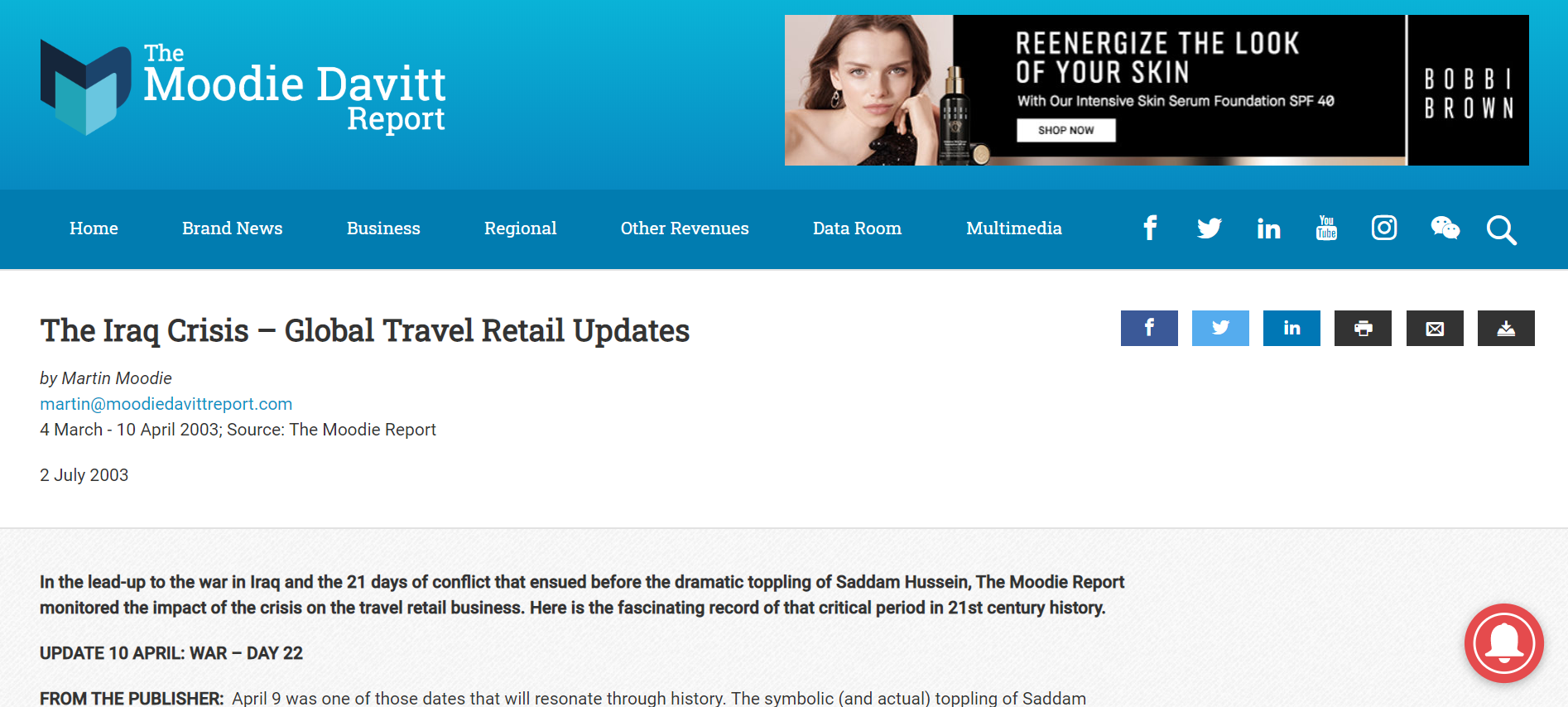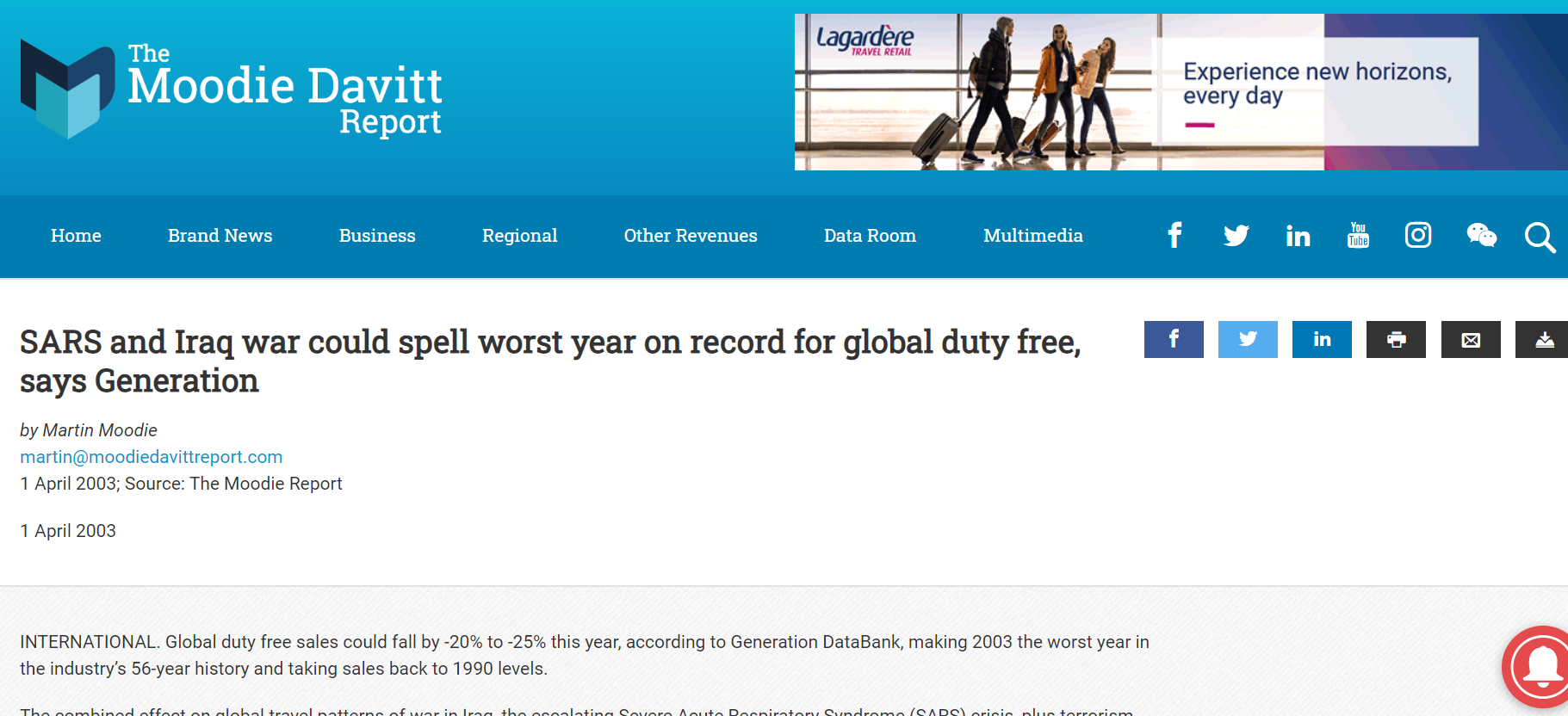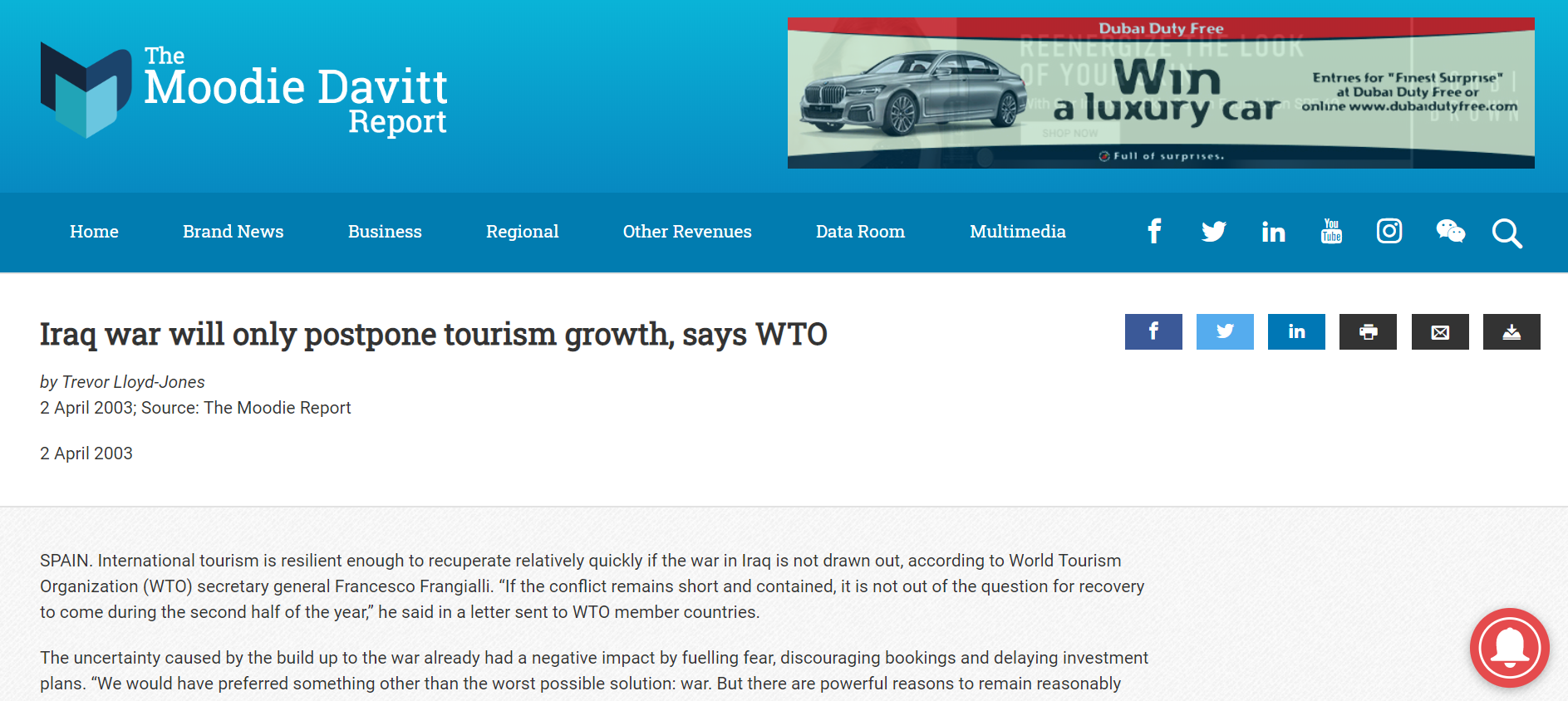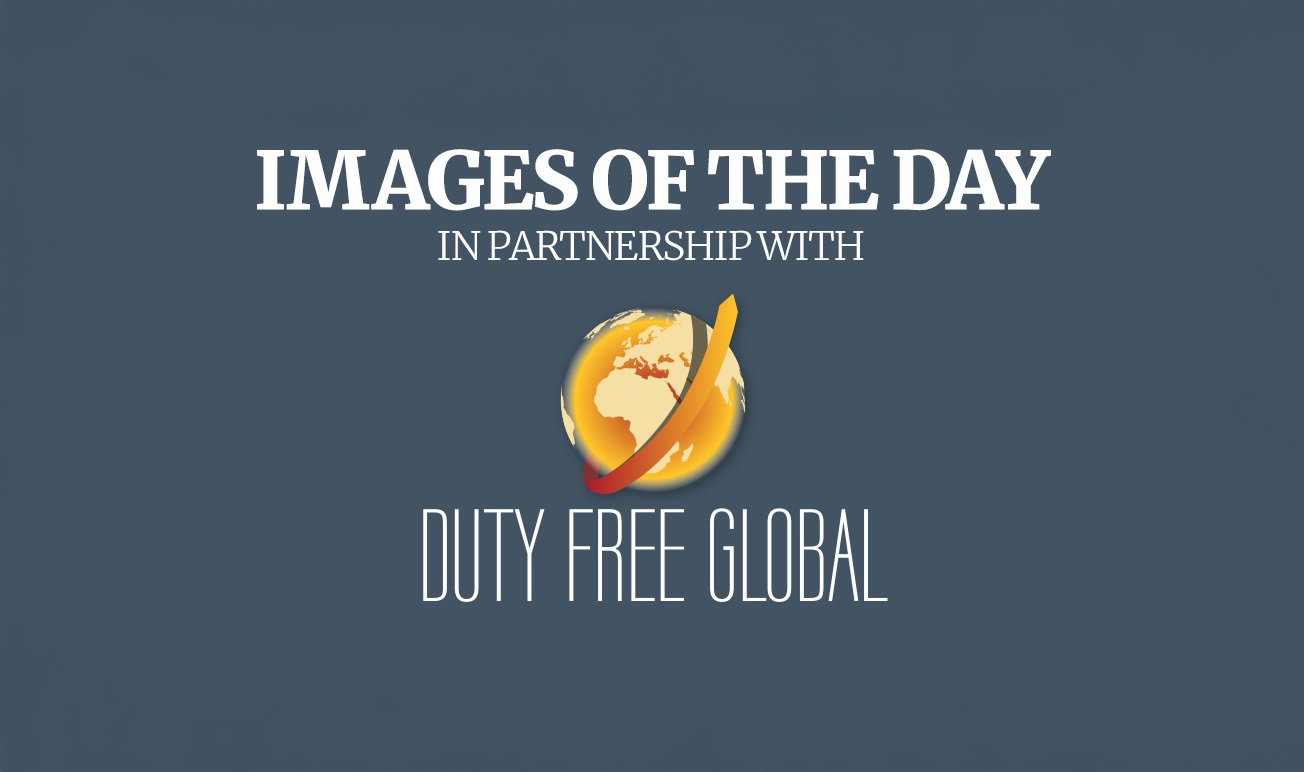Media reaction to the US airstrikes Whether you endorse or condemn his actions, Soleimani was among the most influential figures in the Middle East of the past decade. His death – and the consequences of this stark US attack – will weigh heavily on the next 10 years in the region. – CNN Soleimani and al-Muhandis’s deaths are a potential turning point in the Middle East and are expected to draw severe retaliation from Iran and the forces it backs in the region against Israel and US interests. – Al Jazeera His death marks a decisive turning point in what is already a major crisis between Iran and the US and its allies. Escalation is expected and retaliation seems certain, setting an already volatile region on an even more dangerous course. – BBC |
MIDDLE EAST. Today’s US killing of General Qasem Soleimani, the head of the Iranian Revolutionary Guards’ elite Quds Force, has huge repercussions for the wider Middle East region, including potentially its vital travel and tourism sectors.
Soleimani was killed by a US drone strike at Baghdad International Airport earlier today. The Pentagon said the strike was directed by President Donald Trump, aimed at “deterring future Iranian attack plans”.
Abu Mahdi al-Muhandis, the deputy head of the Iran-backed Iraqi Popular Mobilization Forces (PMF), was also killed in the attack, the PMF said.
The US holds Soleimani and his Quds Force responsible for the deaths of hundreds of American and coalition service members, and the wounding of thousands. The drone strike comes after protesters this week attacked the US embassy in Baghdad, a development approved by Soleimani, the Pentagon claimed.
Announcing three days of national mourning, Iranian Supreme Leader Ayatollah Ali Khamenei said that “severe revenge awaits the criminals” behind the attack.
Iranian Foreign Minister Javad Zarif described the strike as an “act of international terrorism”. He tweeted that the US “bears responsibility for all consequences of its rogue adventurism”.
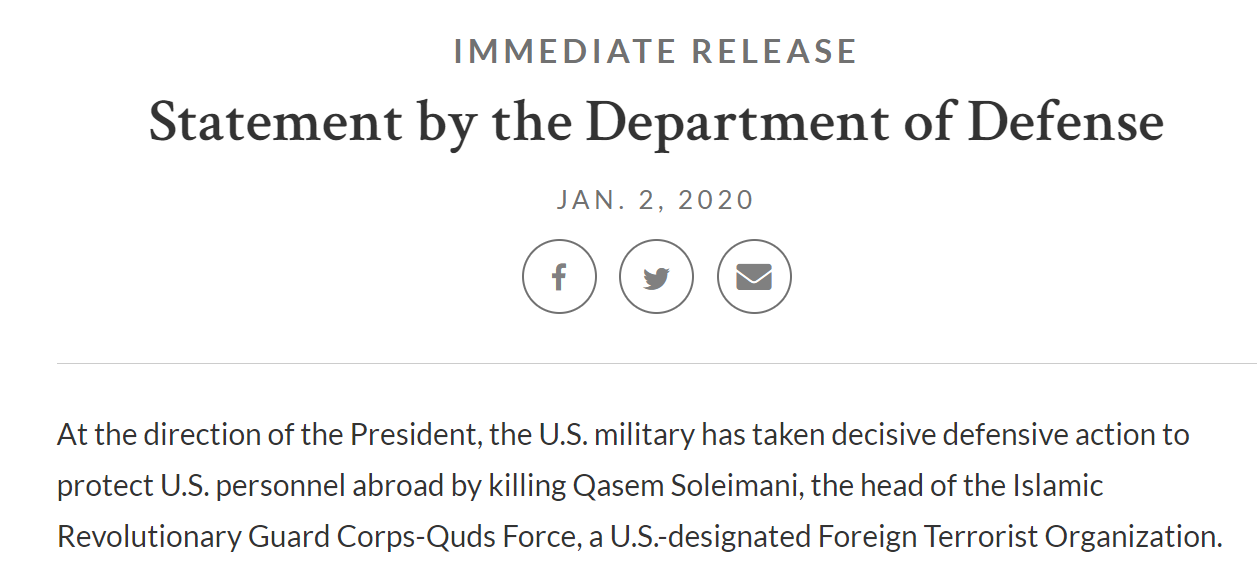
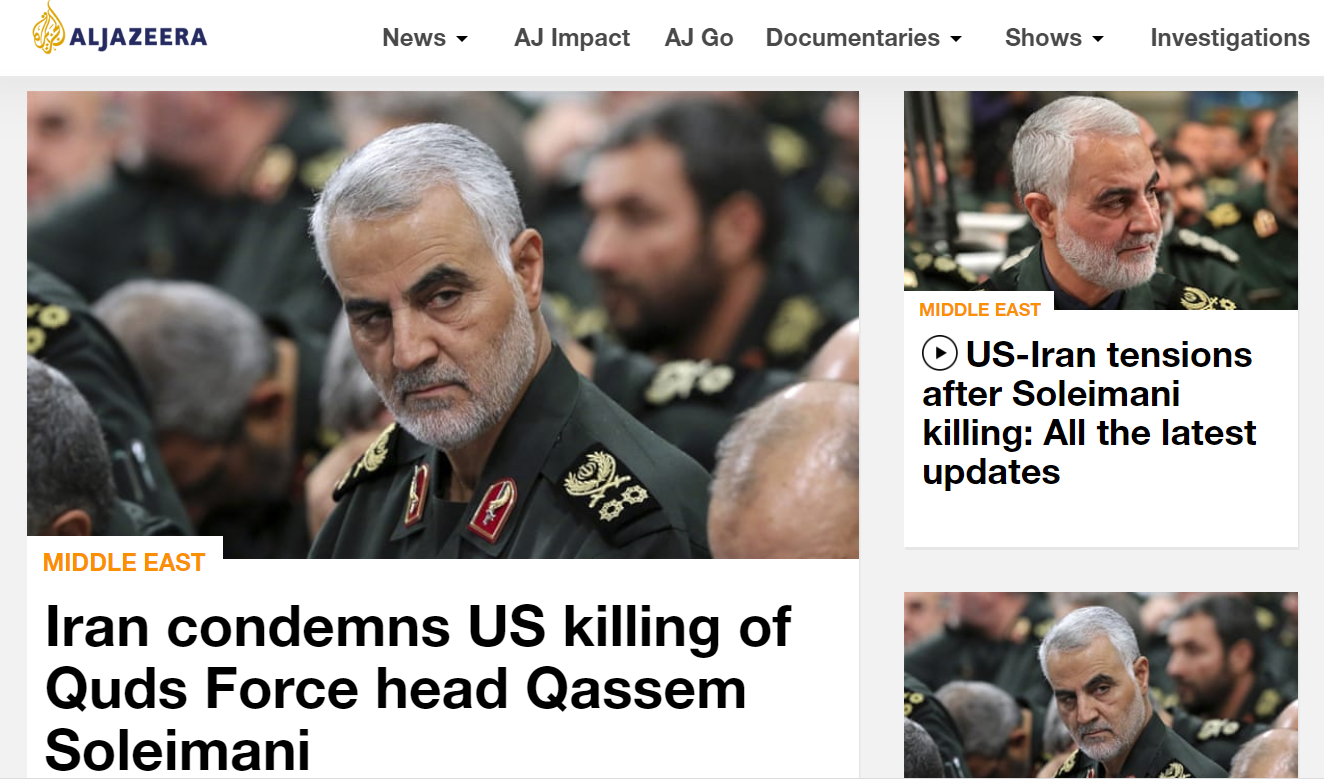
Travel markets repercussions?
As any long-term observer of Middle East affairs will testify, tourism and related sectors such as travel retail are deeply vulnerable to political crises. Both Gulf Wars of 1990-91 and 2003 onwards had a tremendous impact on aviation, tourism and travel retail, not just within the Middle East.
Oil prices, a harbinger of market confidence, have soared by +4% today with Brent crude futures up by nearly US$3 to US$69.16 per barrel, the highest point since 17 September.
Any escalation of the crisis – and an Iranian reaction seems certain – will be of deep concern to the travel retail sector. From the time the US launched Operation Desert Storm against then-Iraqi leader Saddam Hussein on 17 January 1991 until the ceasefire on 28 February 1991, travel retail suffered tremendous losses worldwide. DFS, for example, saw its business in far-off Hawaii slump by around -70% overnight once hostilities commenced as Japanese tourists stayed away in droves. Heathrow Airport suffered an immediate -20% fall in passenger numbers and the pattern was repeated in numerous airports globally.
In 2003, history repeated itself, as tourism and passenger numbers were affected around much of the world, a stark period for the travel retail sector. The Moodie Davitt Report, then a fledgling website in its first year, kept the industry updated with a daily update service chronicling the conflict’s severe impact on business.
It is to be hoped that this week’s developments do not spell the beginning of a sustained political, economic and business crisis.
